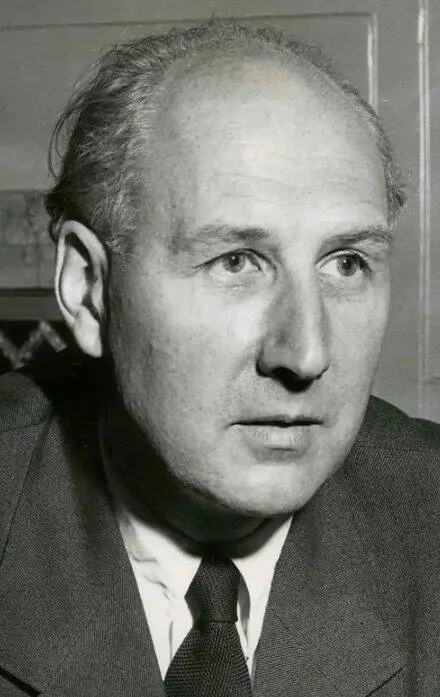
A group of leaders representing First Nations is demanding the resignation of Ontario’s housing minister and his chief of staff. This call comes in the wake of criticism from the auditor general, who found fault with the government’s lack of consultation with Indigenous communities prior to the contentious choice of allowing housing development on ecologically protected Greenbelt land spanning thousands of hectares.
The leadership council of the Chiefs of Ontario, an entity dedicated to advocating for the interests of 133 First Nations within the province, convened on Thursday to deliberate on how to address the 95-page report issued by Auditor General Bonnie Lysyk, which was made public last week.
According to the report’s findings, the government’s selection of sites to be excluded from the Greenbelt was unduly influenced by a small clique of influential developers who had connections with Housing Minister Steve Clark’s chief of staff, Ryan Amato.
“It has become glaringly clear through the auditor general’s report findings that the processes in which these events took place were not transparent or fully informed, nor did they consider the need for consultation with First Nations before taking actions that directly affect First Nations’ inherent, treaty, and constitutionally protected rights,” stated the Chiefs of Ontario in a press release that CBC Toronto obtained ahead of its scheduled Friday release.
“The way in which government representatives are evading responsibility and ignoring critical findings within the auditor general’s report is unacceptable.”
While Ford and Clark have acknowledged the shortcomings in the selection process, they have chosen not to implement any staff adjustments or reverse the initiative to construct 50,000 residences within the Greenbelt.
The Chiefs of Ontario conveyed that following their Thursday meeting, they have resolved to sustain their collaboration with the Ministry of Municipal Affairs and Housing. However, they will suspend their collaboration with Clark “until a satisfactory resolution of this matter is affirmed.”
The leadership council of these groups has announced its intention to urgently seek a meeting with Premier Doug Ford and Indigenous Affairs Minister Greg Rickford. Their objective is to “reestablish a functional partnership with the province” and to engage in dialogue regarding their set of requests. These demands encompass the swift departure of Amato, the resignation or removal of Clark, the reinstatement of the lands into the Greenbelt, and the annulment of a recently enacted housing statute referred to as Bill 23.
“The [Chiefs of Ontario] looks forward to raising these concerns and demands directly with the premier and his staff to ensure that First Nations voices are heard,” the news release said.
The provincial NDP, Liberals and Green Party leaders have all called for Clark to resign following the report.
Lysyk highlighted that First Nations communities, whose ancestral lands and treaty entitlements were impacted by the adjustments to the Greenbelt, shared with her that the province failed to fulfill its legal obligation to consult Indigenous communities before enacting measures that could potentially compromise their rights.
“Members of First Nations we met with told us that the province does not seem open to discussing the adverse impacts of Greenbelt removals to treaty lands and rights, and that, should development occur on these lands, the removals could have profound impacts on treaty rights, especially in terms of harvesting crops such as wild rice.” Lysyk stated
The bulk of the land extracted from the Greenbelt is encompassed by a series of treaties involving the Mississaugas of the Credit First Nation and the 1923 Williams Treaties, which include seven additional First Nations as participants, as outlined in Lysyk’s report. These treaties confer specific entitlements, including the ability to engage in activities such as hunting, fishing, trapping, and gathering within designated regions.
Lysyk’s investigation revealed that the housing ministry’s engagement with Indigenous groups involved the subsequent actions:
- Dispatching emails in November 2022 to 12 chiefs from various First Nations and additional Indigenous leaders. These emails contained links related to the 30-day consultation initiative.
- Extending invitations to First Nations communities to initiate communication with a senior ministry representative, either to share input, provide feedback, or arrange meetings for discussions.
- Holding virtual meetings with representatives from three First Nations.
- Issuing a follow-up email in December 2022 to inform the involved First Nations about the advancement of the Greenbelt amendment decision.
Chief Kelly LaRocca, representing the Mississaugas of Scugog Island First Nation and a signatory to the Williams Treaties, addressed the Chiefs of Ontario leadership council during Thursday’s gathering. In conversation with CBC Toronto, Chief LaRocca expressed that receiving “a few emails during the final stages” fell short of constituting substantive consultation.
“The Ford government has a track record of consistently ignoring Indigenous voices and treaty rights” Chief LaRocca remarked.
“It’s really set back the clock on reconciliation.”
Gimaa (Chief) Stacey Laforme, representing the Mississaugas of the Credit First Nation, voiced criticism against the Ford administration, characterizing its approach as a “goal-driven ideology” centered around commerce and expansion.
“That narrow vision, that tunnel vision is not effective anymore,” Laforme said.
“We must always consider the environment whenever we’re making a decision, whether it’s a business decision, whether it’s a housing decision, whether it’s construction.”
However, Laforme noted that even though his nation maintains affiliation with the Chiefs of Ontario, he holds a differing viewpoint regarding the choice to specifically target Clark and Amato.
“Just having two people sort of fall on the sword is not the answer,” he said. “They have to look at systems themselves and see where they failed and try to correct those systems.”


